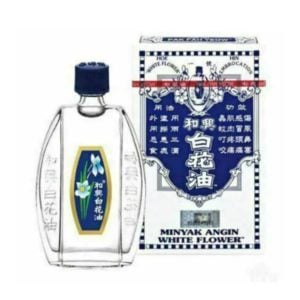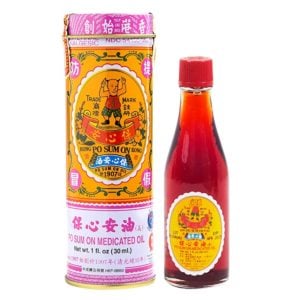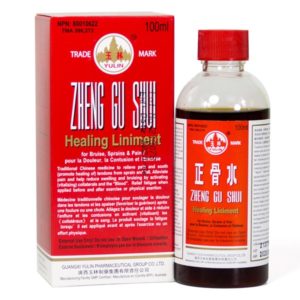Are you wondering which form of a Chinese herbal formula is right for you? Let’s explore the various types of Chinese herbal medicine to help you decide.
Those new to Chinese herbal medicine often ask why there are so many different types of preparations, like pills, tablets, tinctures, and decoctions. What’s the difference? And which one is best for you?
The answer lies in the rich history of Chinese medicine, a practice that has developed over thousands of years.
Traditional Chinese Medicine (TCM) is a diverse healing system – there is no single “cure” for any one health concern. Rather than have one single way to treat an issue, different options developed over different regions, treatment styles, and time periods. This philosophy has led to a diverse range of treatment methods, diagnostic tools, and forms of herbal medicine.
Let’s dive deeper into the forms of Chinese herbal medicine so you can find the options that work best for you.
Why Do Different Forms of Chinese Herbal Medicine Exist?
Chinese herbal medicine is designed to be flexible, accommodating various lifestyles, health needs, and preferences. Some forms, like decoctions, are powerful but may require extra time and preparation. Others, like teapills, offer convenience for modern life, even if they need to be taken in higher quantities. Each form has its own benefits, and the “right” one often depends on individual needs.
So, what are the different types of Chinese herbal medicines?
Decoctions: Traditional and Potent
Decoctions were one of the first forms of herbal medicine used in China and were the most popular preparation in one of Chinese medicine’s most influential texts, the Shanghan Lun. Decoctions are prepared by soaking and cooking a batch of herbs in water (often individually formulated and measured for each person) from 20 minutes to several hours. The result is a potent liquid remedy that you drink a portion of several times per day.
While we do not offer traditional decoctions at Best Chinese Medicines, our Chinese Herbal Soup range works in a very similar way.
How They Work: Decoctions allow for the most potent and customizable doses, often tailored to each individual’s unique needs. However, they require time, effort, and a tolerance for strong flavors (often bitter or earthy) that can be unpleasant to some.
Pros: Highly potent, personalized for specific needs.
Cons: Time-consuming, strong in taste, and less convenient for modern lifestyles.
Who They’re Best For: Those with specific health needs who want a highly potent solution and don’t mind the extra preparation.
Granules: The Modern Decoction Alternative
Granules are a modern invention that helps to take the inconvenience out of traditional “raw herb” decoctions. These granules are essentially decocted herbs or full herbal formulas that are evaporated into a concentrated syrup. This syrup is then sprayed onto a powder carrier (such as starch) and dried further into a powder.
To take a granule formula, you simply measure your specific dose into a teacup and add hot water to dissolve (like instant coffee).
How They Work: Granules capture the potency of traditional decoctions without the lengthy preparation. They are also easier to take and come with a milder taste.
Pros: Convenient, customizable, nearly as potent as decoctions.
Cons: Less portable than teapills or tinctures and requires water to prepare.
Who They’re Best For: Those looking for potency and flexibility with less preparation than decoctions.
Teapills and Tablets: A Convenient Approach to Wellness
Teapills are small, round pills made from powdered herbs. Traditionally, powders were mixed with honey to form these tiny “teapills,” which makes them very convenient to take throughout the day (even if you’re on the go).
Each teapill contains a small amount of active herbs. Their tiny size makes them easier to swallow and allows for flexible dosing, but it also means that more teapills are required to get the results you need. That’s why you may see a dose of up to 24 teapills per day! This may seem odd if you’re used to taking just a couple of vitamins or tablet supplements, but it’s an appropriate dose for a pill of this size.
Another unique feature of capsules and teapills is fillers. Fillers (like starch) are used to bind the herbs and maintain stability, ensuring consistent dosages and a long shelf life. These fillers are safe to consume and help maintain the right potency and consistency of the teapills.
How They Work: Teapills are convenient, portable, and often easier to take for those who prefer smaller doses throughout the day.
Pros: Portable, easy to take, long shelf life.
Cons: Some find it challenging to get used to taking many pills.
Who They’re Best For: Busy individuals looking for a portable, gradual approach to TCM.
Tinctures: Potent Drops on the Go
Tinctures, or liquid herbal extracts, are a modern way to reap the benefits of Chinese herbal medicine. However, they do have an ancient beginning.
Early Chinese medical doctors would steep herbs into wine and later drink the elixir. These were most commonly used for issues of blood stasis (menstrual disorders, severe pain, or injuries), cold conditions (arthritis, paralysis, post-partum disorders), or cough and asthma. In a Chinese medicinal wine, the wine itself is also considered one of the healing ingredients. Wine has a warming and moving quality, which is particularly helpful for unblocking stuck energy and encouraging blood circulation.
Today, modern manufacturers make tinctures, rather than medicinal wines. Tinctures are strongly concentrated herbal formulas (still extracted in alcohol) that require only a few drops for dose.
How They Work: Tinctures offer concentrated benefits in just a few drops. They’re great for children, pets, or anyone who needs a discreet and easy way to take herbs.
Pros: Strong potency in a small dose, portable, easy to mix with water or juice.
Cons: Alcohol content may not be suitable for everyone.
Who They’re Best For: Those needing a potent, portable way to take their herbal formulas.
Oils, Liniments, and Topicals: Direct Relief Where You Need It
Chinese herbal medicine is effective in treating both internal and external conditions. While other forms of herbal medicine are taken orally (like decoctions and pills), topical products can put the power of herbs directly on the troubled area. Both internal and external formulas can be taken to improve the healing process of external issues like pain or skin disorders.
-
 White Flower Oil (Embrocation) – by Hoe Hin Pak Fah Yeow
Starting at $12.49
Add to CartSelect options
This product has multiple variants. The options may be chosen on the product page
White Flower Oil (Embrocation) – by Hoe Hin Pak Fah Yeow
Starting at $12.49
Add to CartSelect options
This product has multiple variants. The options may be chosen on the product page
-
 Po Sum On – External Analgesic – Pain Reliever
Starting at $14.99
Add to CartSelect options
This product has multiple variants. The options may be chosen on the product page
Po Sum On – External Analgesic – Pain Reliever
Starting at $14.99
Add to CartSelect options
This product has multiple variants. The options may be chosen on the product page
Topicals like Po Sum On and White Flower contain potent herbs, extracted over time in an oil. As oils, these are great for areas of muscular pain that benefit from massage or pressure. These also double as headache relievers (dab a small amount on the temples or back of the head) and chest-openers (gently massage these oils on the chest to unblock nasal or chest congestion).
Liniments (like Zheng Gu Shui), on the other hand, are made by extracting herbs by steeping them in alcohol or vinegar rather than oil. This process draws out both the oil-soluble and alcohol-soluble components of the herbs, creating a more concentrated and fast-absorbing topical. Liniment extractions allow the herbal compounds to penetrate the skin more effectively and reach deeper layers of muscle and tissue. The alcohol base also provides a cooling and invigorating sensation, which can be particularly beneficial for soothing bruises, sprains, or areas of inflammation.
How They Work: By applying these products directly to the skin, herbs can deliver fast, localized relief.
Pros: Effective for external conditions, fast-acting.
Cons: Can be limited to “external” issues like pain, headaches, sinus issues, and stress relief. Not suitable for internal issues or organ imbalances.
Who They’re Best For: Those seeking relief for pain, skin concerns, or respiratory issues.
Types of Herbal Medicine: Frequently Asked Questions (FAQ)
- Why do I have to take so many teapills?
Each teapill contains a small amount of active ingredients, designed this way to make dosing flexible and manageable. Because of this, several pills are needed for a therapeutic dose for most adults. But, this flexibility also makes teapills great for tailoring the dose for children, the elderly, or even pets. Not to mention, the small size of teapills is helpful for those who struggle to swallow bigger tablets. - Are fillers harmful in teapills and tablets?
No, fillers are safe and commonly used to bind herbs together and maintain stability. They’re generally safe and chosen to ensure a consistent dose in every pill. - How do tinctures compare to tablets?
Tinctures are more concentrated, requiring only a few drops for a dose, while tablets are designed for a slower, gradual release of herbs. - Why do tinctures contain alcohol?
Alcohol is used as a solvent in tinctures to extract a wide range of active compounds from herbs and preserve the formula for a longer shelf life. Alcohol also helps the formula absorb quickly into the bloodstream, making tinctures effective for fast-acting relief. The amount of alcohol in a tincture dose is extremely low, but for those sensitive to alcohol, tinctures can often be diluted in hot water which allows some of the alcohol to evaporate. - Can I take more than one form of Chinese herbal medicine at a time?
Yes, but it’s best to consult a practitioner to ensure that the combination and dosage are suitable for your needs. Many people use topicals like liniments or oils alongside internal forms (teapills, tablets, or tinctures) for a well-rounded approach, especially in pain management. - What’s the difference between teapills and tablets?
Teapills are generally smaller, spherical pills that contain powdered herbs mixed with a small amount of filler or binding agent. Tablets are typically flat, compressed herbs that may also contain fillers or binders. Both forms are convenient and portable, but tablets have a slightly higher dosage of herbs per unit than teapills. - How long will it take to feel the effects?
This varies depending on the form and your unique circumstances. Tinctures and topicals tend to work relatively quickly due to their high absorption rates, often providing relief within 15-30 minutes. Teapills and tablets may take longer (a few hours to a few days), and decoctions or granules are often felt after consistent use over several days, depending on the condition being treated. - Are these formulas safe for children or pets?
Yes, many Chinese herbal formulas are safe for children and pets, though it’s best to consult a practitioner for appropriate dosing. Tinctures are often diluted in juice or water for children or pets, as they’re easy to administer and can be measured more precisely. - What’s the shelf life of each form?
Tinctures typically last the longest, around 3-5 years, due to the preservative nature of alcohol. Teapills, tablets, and granules generally last 1-2 years if kept in a cool, dry place. Decoctions should be consumed within a few days of preparation (kind of like an herbal soup), as they don’t contain preservatives. - How should I store my Chinese herbal medicine?
Store teapills, tablets, and granules in a cool, dry place away from direct sunlight. Tinctures should be kept tightly sealed, ideally in a dark cabinet. If you prepare decoctions at home, refrigerate them and consume within 1-3 days.
Finding the Right Chinese Herbal Medicine for You
Chinese herbal medicine offers a range of options to suit different health needs and lifestyles. Whether you’re looking for convenience, potency, or portability, there’s an option for you.
Shop our full collection of TCM remedies today, or reach out to us for guidance on the form that best fits your wellness goals!


 Zheng Gu Shui – Yulin Brand
Zheng Gu Shui – Yulin Brand